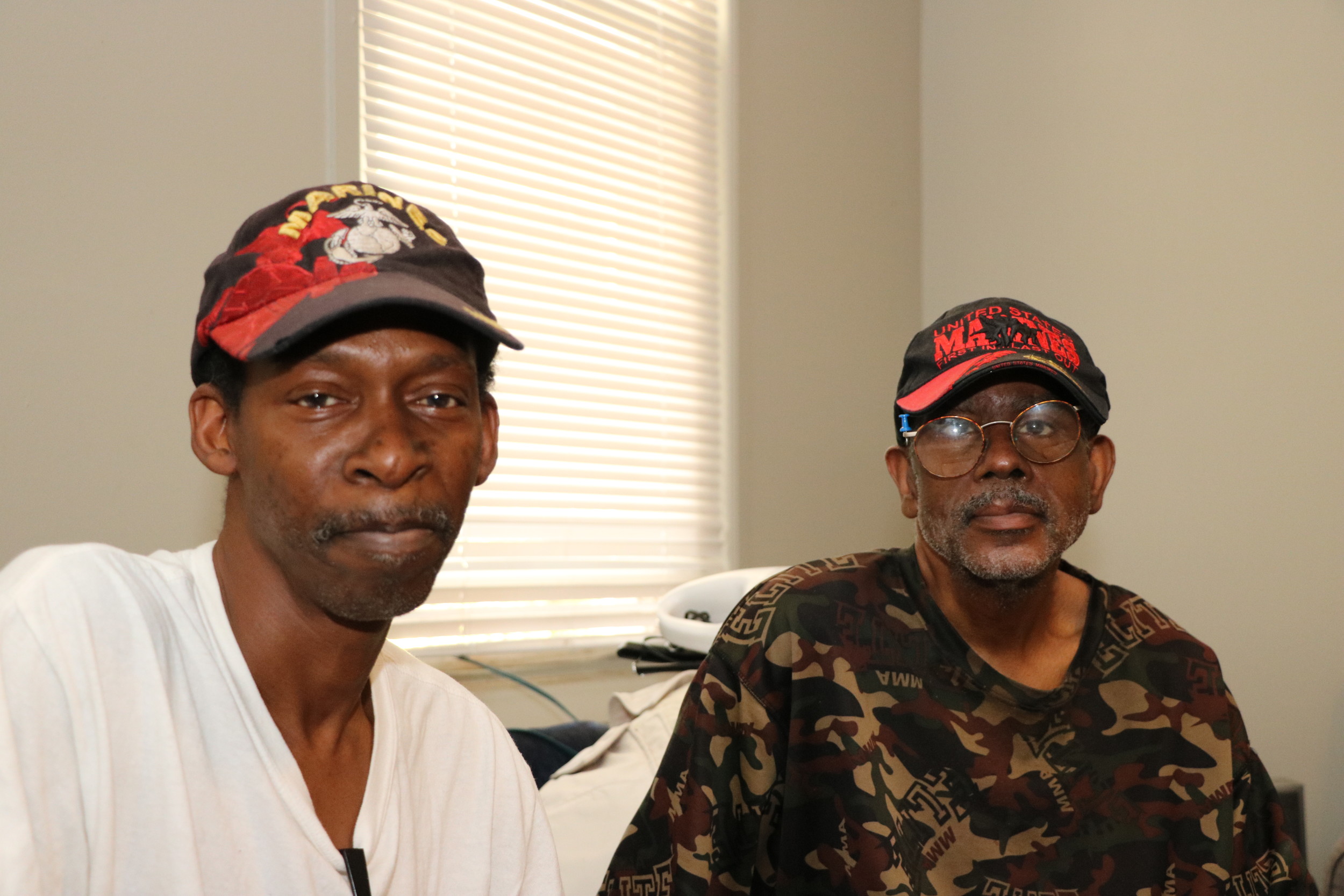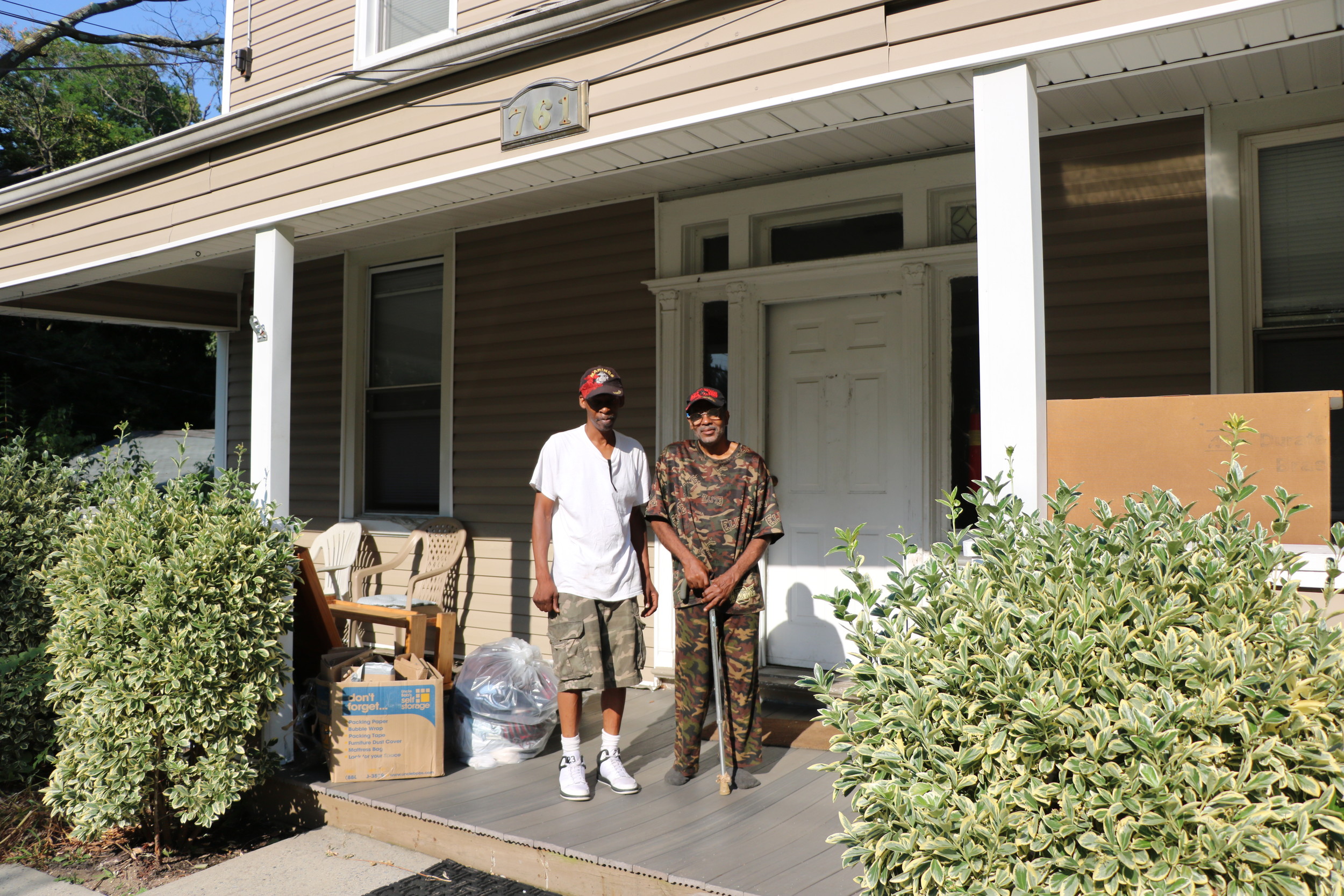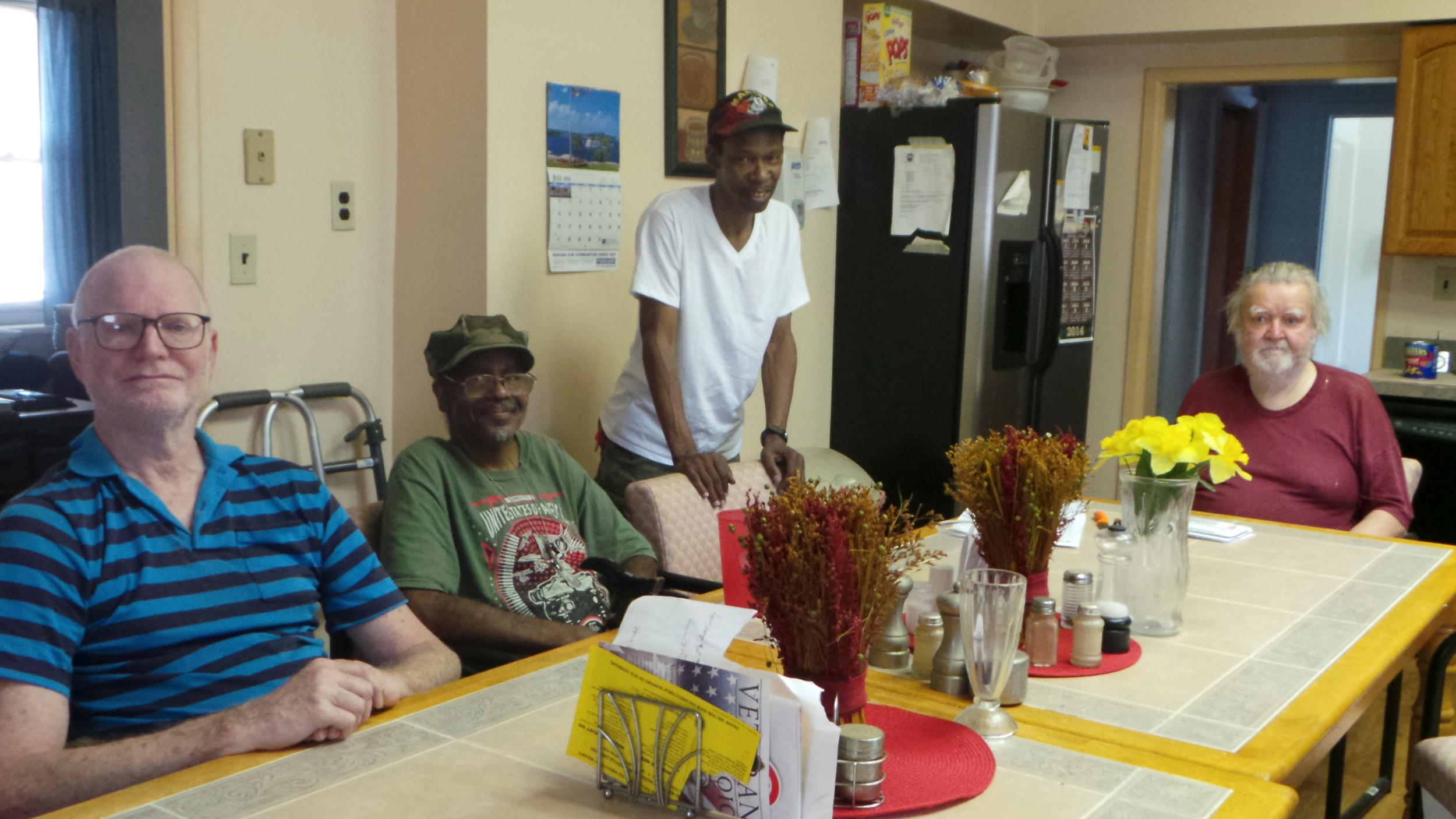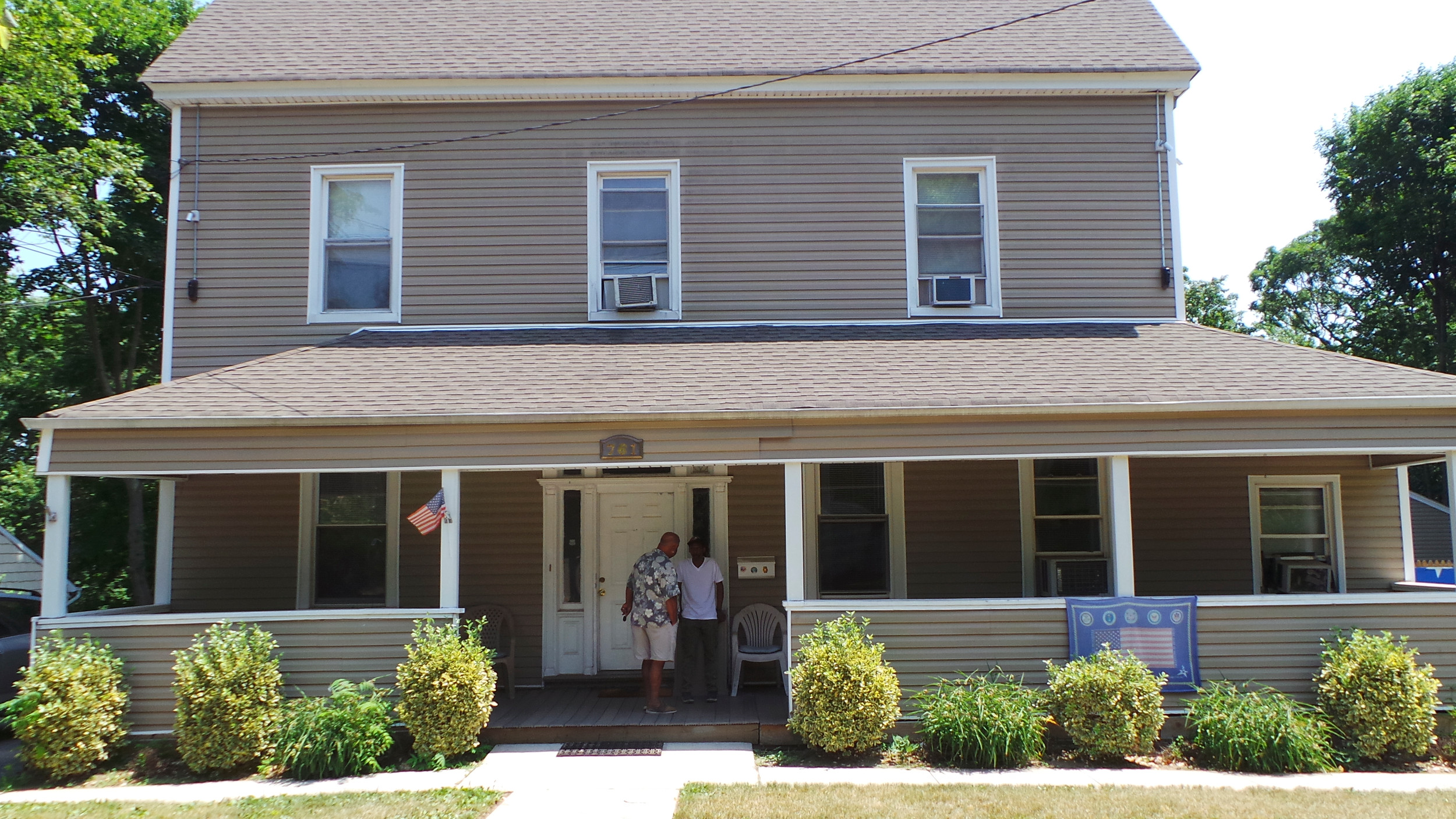W.H. veterans must vacate Woodfield Road residence
Marine veteran James Brooks, 58, was one of eight men who had settled in what was supposed to be a temporary home for veterans on Woodfield Road in West Hempstead when he and his housemates received notice last year that they needed to vacate. “They want everybody to move out,” Brooks said. “So everyone began scrambling, trying to find a place to live.”
The house, owned by the nonprofit Family & Children’s Association, was meant to be a transitional shelter for veterans. But James has lived there for 11 years, and Kevin Brooks, 64 (no relation), has been there longer. Neither wants to leave.
Within several weeks, all occupants must move out of the residence. Five of the men have found other housing and left. But three still remain.
The house, which has no on-site staff, is not suitable for the veterans living there, said Dr. Jeffrey Reynolds, president and CEO of the FCA. James said that the floor in his bedroom is caving in. The walls need paint, and the carpet is old. But right now, that’s not the primary concern, Reynolds said. “One of the residents requires skilled nursing care, and the other folks can get by with some light medical management,” he said, “but it needs to be a supportive environment — like having a case manager that comes by two to three times a week. This house was originally designed to provide temporary support for someone so they can move on to the next phase of their life.”
The agency is trying to find new homes for James, Kevin and their roommate, Peter Abrahamsen, 82. “We’re not going to pull the plug on them until everyone is suitably placed,” Reynolds said.
James and Kevin said that they have been speaking with the Black Veterans for Social Justice, and this week, the men were planning to look at an apartment in Jamaica, Queens, that the group found for them.
All three of the men are worried that all of their military, Social Security and other benefits will be needed to pay for their new living situations. “Bill basically didn’t want to leave here,” James said of a former housemate. ”They put him in a nursing home, and now he has no money. They’re taking all his money out of his check. Now he’s paying for someone to wash his clothes — stuff that used to be free for him.”
Abrahamsen agreed. “They take all of your money,” he said, adding that Family & Children Services wants to relocate him to an assisted living home. “I don’t want to go into an assisted-living place. I’d rather die.”
The eight residents of the house had not paid rent for at least a year, although they had agreed to when they moved into the house, Reynolds said. “We ask the guys to pay rent, and they don’t — but that’s not the issue,” he said. “When I see people aging, falling and experiencing significant discomfort, it’s not the right thing to do. They can get a better quality of life in an environment that would meet their needs.” James said that only two of the residents hadn't paid their rent for at least a year.
Reynolds said he was unsure what Family & Children’s Services, which offers numerous residential, educational, health and senior services to the underserved and disadvantaged, will do with the house after all of the veterans leave. “If I had my way, I would empty the house, make capital improvements and restructure it so that it’s transitional,” Reynolds said, meaning that the home’s rules about temporary stays would be enforced. “Everyone would understand that it’s there for a transitional period.”
He said he is reluctant to sell the house, even though there is no funding for staffing or repairs. “It’s really hard for a community to accept housing like this,” Reynolds said, “and I hate to give it up.”













